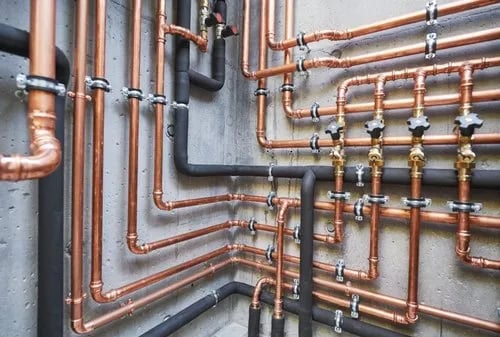Why Medical Gas Pipeline Systems Are the Lifeline of Hospitals
8/18/20252 min read


Introduction: Unseen Heroes in Healthcare
In the complex world of healthcare, numerous systems operate behind the scenes, playing a crucial role in patient care and safety. Among these, medical gas pipeline systems (MGPS) remain the unsung heroes, ensuring the seamless delivery of essential gases such as oxygen and nitrous oxide. These systems are vital for maintaining optimal conditions in intensive care units and operating theatres, demonstrating that the infrastructure of healthcare is as critical as the high-tech equipment often in the spotlight.
Role of MGPS in Critical Care & Surgeries
Medical gas pipeline systems serve as the backbone of critical care facilities. In emergency situations, the ability to provide immediate access to oxygen, medical air, and vacuum suction through an efficient pipeline surpasses the reliance on traditional gas cylinders. MGPS not only guarantees a constant supply of these vital gases, but it also significantly reduces the risks associated with transporting and handling heavy gas cylinders. Furthermore, in surgical settings, MGPS enhances operational efficiency, allowing surgical teams to focus solely on patient care rather than gas management. This operational excellence can be the difference between life and death, particularly in emergency surgeries where every second counts.
Benefits of a Centralized Gas Supply Over Cylinders
The advantages of a centralized medical gas pipeline system are manifold when compared to the use of gas cylinders. Firstly, centralized systems eliminate the hassle of changing and storing cylinders, minimizing the risk of accidents and logistical errors. A steady and reliable supply ensures that healthcare providers can deliver timely treatment without interruption. Moreover, MGPS designs allow for better monitoring of gas levels; any discrepancies can be quickly addressed before they impact patient care. In addition, centralized systems contribute to cost efficiency, reducing the need for frequent purchasing and storage of gas cylinders while enhancing overall operational workflows within the hospital environment.
Compliance and Patient Safety
Compliance with healthcare regulations is paramount for any medical facility. Medical gas pipeline systems must adhere to stringent standards set by authorities to ensure patient safety and system reliability. Certified MGPS installations are meticulously designed, installed, and maintained to meet these regulations. Regular inspections and maintenance further augment the safety of these systems, ensuring that they are always ready to deliver critical gases as needed. Knowing that a hospital has invested in a compliant and certified MGPS not only provides peace of mind to medical staff but also to patients and their families, fostering an environment of trust and confidence.
Why Choosing a Certified Supplier Matters
Selecting a certified supplier for the installation and maintenance of a medical gas pipeline system is crucial for ensuring safety and reliability. Certified suppliers have the expertise necessary to design robust systems that comply with the latest standards in healthcare. Furthermore, they will provide ongoing support and training for hospital staff to ensure that everyone is knowledgeable about the operation and monitoring of the system. Choosing a reputable supplier translates into fewer risks and more reliable patient care, ultimately affirming that in the intricacies of hospital infrastructure, the medical gas pipeline systems stand out as essential components of healthcare delivery.
Services
© 2024. All rights reserved.
Products


We're Making it easier to find Better Medical Devices
Find us on Map:
Contact Information
Phone: +91 9029457428 | +91 9833236604 | +91 7506374381
Email : medevices2018@gmail.com | sales@medevices.in
